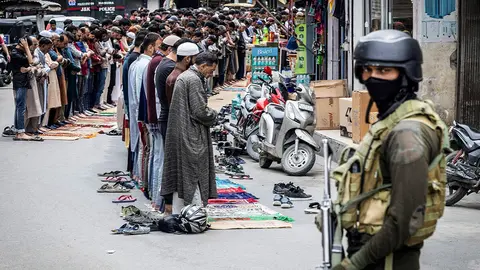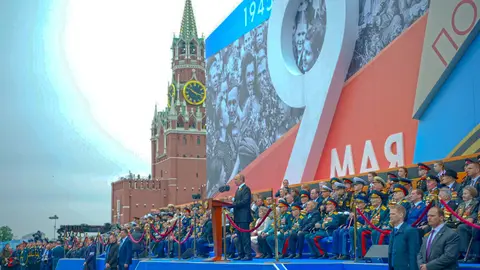Gustavo de Arístegui: ‘Vatican diplomacy can achieve the peace that the world so badly needs’
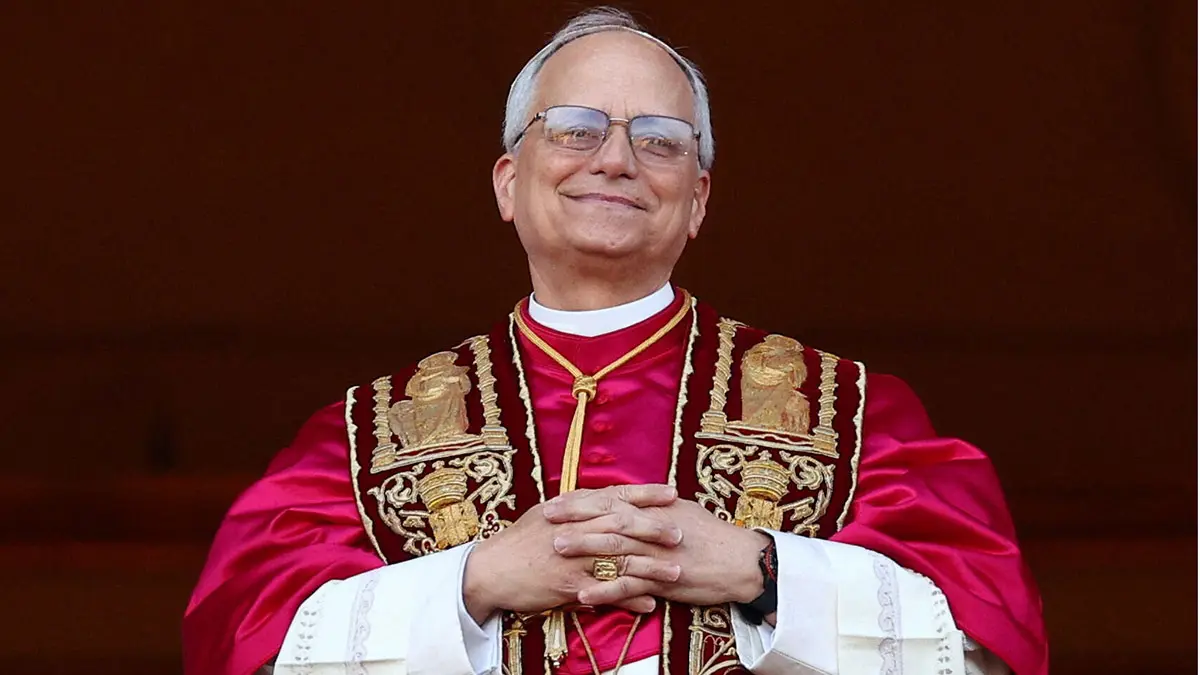
In the latest edition of ‘De cara al mundo’ on Onda Madrid, we were joined by Gustavo de Arístegui, diplomat and international analyst, who reviewed the global consequences of the conflict between India and Pakistan; the career of the new Pope, Leo XIV, and the nature of ecclesiastical diplomacy; and the consequences of the meeting in Moscow's Red Square to mark the 80th anniversary of Victory Day between Xi Jinping, President of China, Nicolás Maduro, President of Venezuela, and Vladimir Putin, President of Russia.
Gustavo de Aristegui, diplomat, expert, international analyst, you were Spain's ambassador to India, and from what I have read in articles and heard on television, there is a lot of concern about the risk of war escalating, even more so between India and Pakistan.
Certainly, and I find it surprising that the Spanish media are not giving it the importance it deserves. It is a very serious crisis, and I also find the analysis somewhat superficial. The false closure of independence, decades-old conflicts, religious conflicts... In short, all of these are only partially true, and the only one that is not is the religious conflicts.
We are witnessing a show of force by Pakistan, which is experiencing a very serious internal crisis and, through the tension with India, is generating this confrontation and, let's say, deepening the feeling that they have a very dangerous external enemy, which is India, in an attempt to cover up their shame and their internal crises, which are extraordinarily serious.
Pakistan is in the midst of an economic, social and political implosion, and at the moment there are even rumours of tensions within the army itself. Last night there were even rumours on various Indian social networks, unconfirmed of course, of an internal coup by the army against its current leader for having embroiled the country in a conflict with unpredictable consequences.
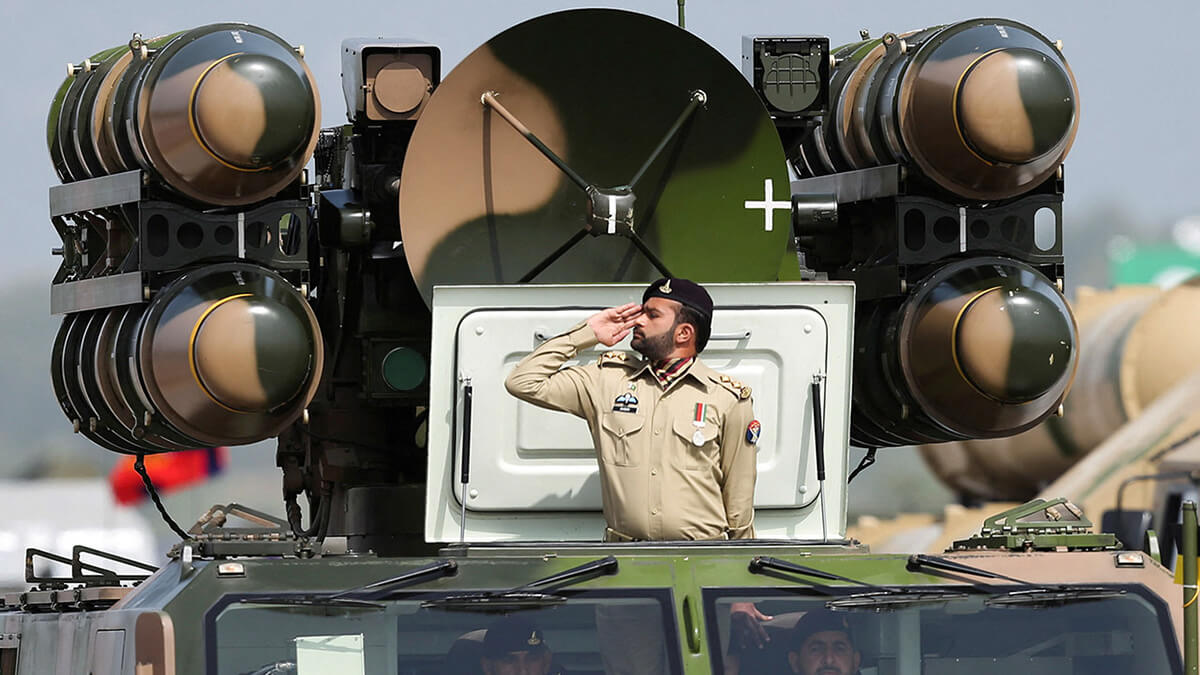
What influence can outside interests, China, the United States, have? Is someone pulling the strings behind the scenes, or is it just the conflicting interests of India and Pakistan, or, as you are explaining, internal interests? Perhaps we can also talk about a certain Islamist influence, which justifies or explains what is happening.
Without a doubt, there is obviously an evident territorial component. Indian Kashmir was occupied in 1947, at the time of partition, partially by Pakistan. Of the 222,000 square kilometres that make up historic Kashmir, 80,000 were occupied mainly by Pakistan on the western side of the mountains, and 32,000 were occupied by China, mainly in the Ladakh region. 000 were occupied mainly by Pakistan in the western mountains, and 32,000 were occupied by China, mainly in the Ladakh region. The rest, 100,000 square kilometres, mainly valleys, and the main valley where the most important Muslim populations are located, and where, it should be noted, a very large population of Kashmiri Brahmins were expelled in 1986, very recently, in a veritable ethnic-religious cleansing, which is also not talked about.
Incidentally, it is important to emphasise that the confrontation between China and India, which are old rivals, enemies and competitors, all at the same time, is not unrelated to this issue. China is a very close ally of Pakistan, which has replaced the United States. The United States has enormous doubts and reservations about Pakistan, because it has been seen to be an unreliable ally, with the strange love-hate relationship it has had with the Taliban, the double, triple, quadruple game always played by the ISI, the Inter Services Intelligence, which is the only intelligence service that exists in the country, namely the military intelligence service.
On the other hand, there is a certain internal tension within the Trump administration, because Trump himself has said that he is willing to intervene if asked by the parties, and that he knows both countries very well, and that he thinks what is happening is terrible, and that he is calling for de-escalation, and as he says, ‘I am here, if any kind of intervention or mediation is needed’. This is followed by the worrying and somewhat irresponsible statements by the Vice President of the United States, J.D. Vance, who said that the conflict between these two nuclear powers is none of our business. If the confrontation between two nuclear powers that share a land border with China, which is another nuclear power, and which also has a land border in this hot spot of the world, is not a matter for the world's leading military power, we are seeing very clearly that this is no longer a question of isolationism, but a question of the United States' loss of real influence by its own decision.
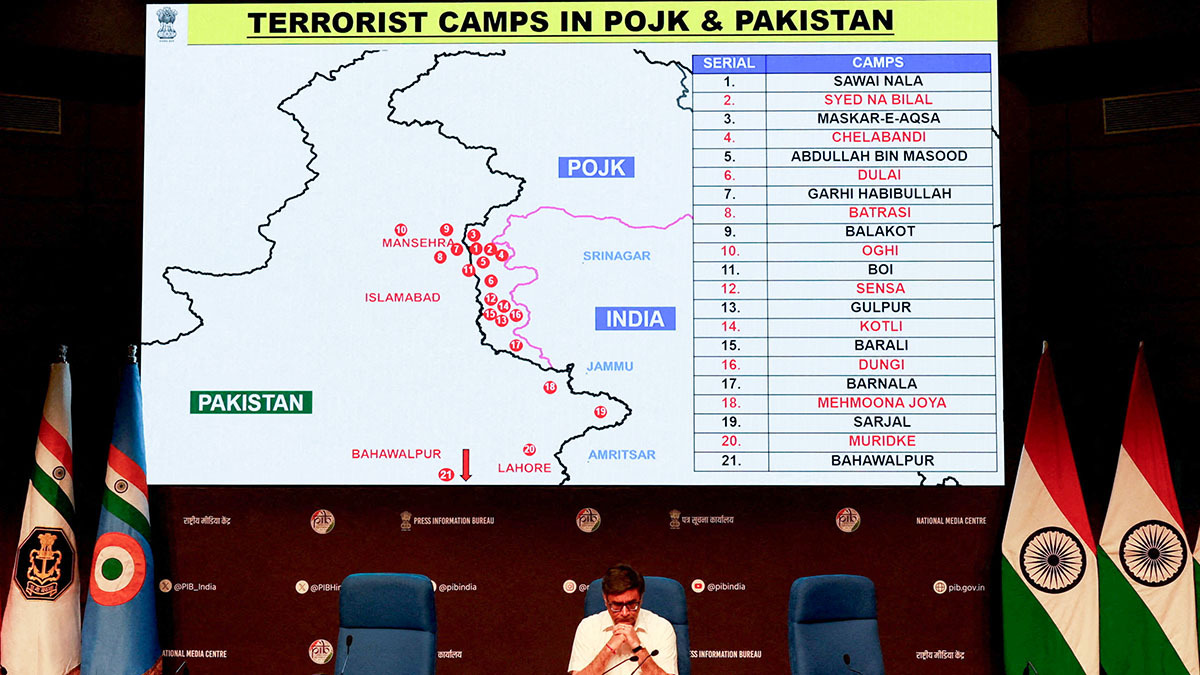
And a rather worrying loss. Heads or tails, Mr Aristegui, new pope, Leo XIV, peace, peace, peace, I didn't count, but he said it many times in his first speech after being elected pope. This American with dual nationality, due to his long life in Peru with the poor, pronounced the word peace, a clear message to the world, wasn't it?
It is clear and hopeful. I have heard statements from well-known people. Recently, on television, I heard an interesting one from the prior of the Order of Saint Augustine, who described him as a centrist pope who will unify the Church. I think that is a very good definition.
He is a pope who, precisely because of his multiracial character, because in Spain he has been labelled Spanish, we believe that when he is called Martínez he is from Chamberí, not exactly, the pope has Creole roots, Creole both in the sense of American Louisiana, which also has very deep Spanish roots, as you know very well, and Haitian Creole. So the name Martínez obviously denotes a clear Hispanic ancestry, but Hispanic, not even Latin, in the US sense, and certainly not Spanish. But this multiraciality of the pope and his character, which to me seems exactly what was needed at this moment.
A pope who will integrate the two sectors that some described or feared existed in the Church as a weakening factor. We must not forget that the Universal Church, for believers and non-believers alike, has an influence that goes far beyond the doctrinal and dogmatic importance of a pope as the spiritual leader of 1.4 billion Catholics, and even a little more. The devotion, interest and passion with which non-Catholics and non-Christians have followed both the funeral of Pope Francis and all the ins and outs of this conclave is worthy of special mention.

You and I know many Muslims with whom we have spoken in recent days who have followed the developments of this conclave with almost more interest than we have, and were glued to the television to see when the white smoke appeared. I found this to be a very clear sign of the importance of the Church, of the geopolitical, social and sociological importance of the Church, which cannot be underestimated. And when it is said that the importance of the pope is fundamentally spiritual, there is no doubt that this is true for believers, but believers should also feel deeply proud that non-believers accord such profound, broad and respected moral authority to the figure of the supreme pontiff of the Catholic Church, because at a time when the world is teetering on the brink of a possible regional or global nuclear holocaust, because when a war begins and nuclear weapons are involved, we know how it starts but not how it ends, it is a blessing, almost a miracle, or a coincidence if you are not a believer, that a pope with such unifying characteristics, who has generated so much excitement and hope at such a terrifying time, is very positive.
And let us also hope that this message of peace, which was written in his own hand, as we have since learned, in perfect Italian, by the way, which has also surprised many, because many people say that cardinals are created cardinals and that they gradually learn Italian, shows that this new pope already had a good grasp of Italian, Castilian, and Spanish, which he used to address the 650 million Spanish speakers around the world. I found it particularly moving, his Spanish was perfect, without any foreign accent.
On the other hand, he is known for his multidimensionality, that is, he is a theologian, a jurist, a mathematician, he has been an administrator, we know that he was highly regarded by the Augustinian order as a prior, which is no small matter. It must be understood that in the Catholic Church, religious orders are enormous, and that they are often much, much more complex, much more difficult, and involve much greater responsibility, without detracting from the merits of the bishops of rather small dioceses, even archdioceses. It is much more important from the point of view of daily management, from the spiritual point of view, from the point of view of mission and evangelisation, to be the prior, the head of one of these religious orders, which also have schools, colleges, seminaries, universities. In fact, the Augustinians are the order responsible for the custody of the Escorial, and they are also in charge of the religious college of the Escorial and the university where, incidentally, the Prime Minister studied.

Well, and the San Agustín school, next to the Santiago Bernabéu stadium, which I mention because my father was a teacher at that school. Mathematician, philosopher, missionary, prior of the Augustinian order, and prefect of the dicastery for bishops, so the management there and the knowledge is clear. Will he continue with what has been Francis' line of dialogue, agreements, signing important documents with Muslims and other religions?
I am sure of it, and furthermore, the latter, that is, he was prefect of the dicastery for bishops, is also a central element in his election, because if there was anyone in the current conclave who knew or could know practically all the cardinals, apart from the Secretary of State or the Cardinal Dean or the Camerlengo, who are the other three central authorities of the Vatican, if there is anyone who knows all the bishops or all the archbishops in the world, it is precisely the prefect of that dicastery. Therefore, it is indeed a very appropriate preparation for exercising the supreme pontificate, and I truly hope that the inspiration of Saint Augustine, to whom many of us are so devoted, a saint, a Berber, a North African and a Doctor of the Church, will inspire the new Pope and that he will be a fundamental element in achieving peace, stability and a better world.
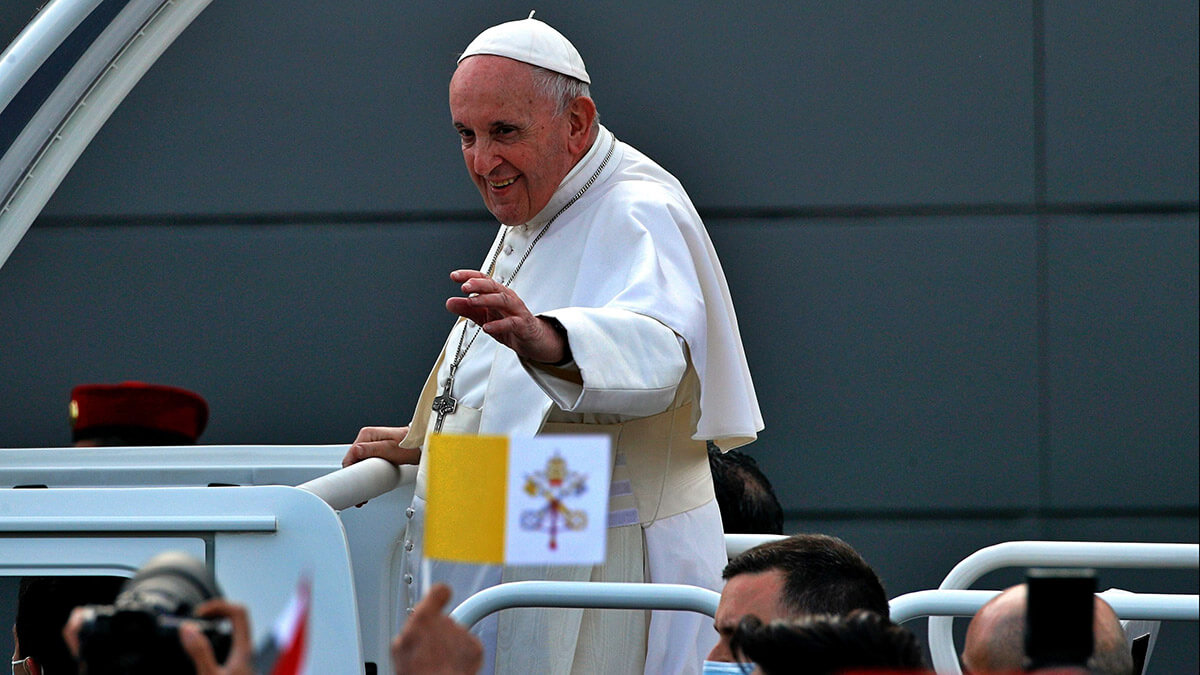
Two quick questions. Could León 14 be a counterweight to Donald Trump, given the game being played between the Americans?
That is not the role of the Pope. The positive element is that Donald Trump is not going to get into a fight with an American Pope, who has also shown that he does not mince his words, but the Church is concerned with other matters. and the Church does not get involved in politics, but it does in diplomacy, because when commentators, who are mostly believers and religious, downplay the diplomatic dimension, they ignore and are unaware of a fundamental part of the Catholic Church.
The Catholic Church, Vatican diplomacy, is the oldest, the most intelligent, the most refined, the most visionary and far-reaching of all that have ever existed. The second oldest is ours, the Spanish Church, which was established as the first permanent embassy in the world, the Spanish Embassy to the Vatican. In other words, we have a shared history that is not to be dismissed, and in any case, Vatican diplomacy is among the best informed on the planet.
During my years at the diplomatic academy, one of my teachers, and my trainers before them, always reminded us of the following: ‘Do not forget that the Catholic Church is represented in all the parishes of the world, where there is a Christian majority and where Christians are not in the majority, and sometimes the information from the dioceses and parishes of those countries where Christians are a minority is more important than that from countries where they are in the majority’.
For example, I remember now a question about someone who was papabile, but who was also a key advisor to Pope Francis and will surely continue to be so, namely the Spanish Cardinal Archbishop of Rabat, who has a very deep understanding of moderate Islam and a very deep understanding of jihadism, which is the common enemy of Islam and the rest of the world.
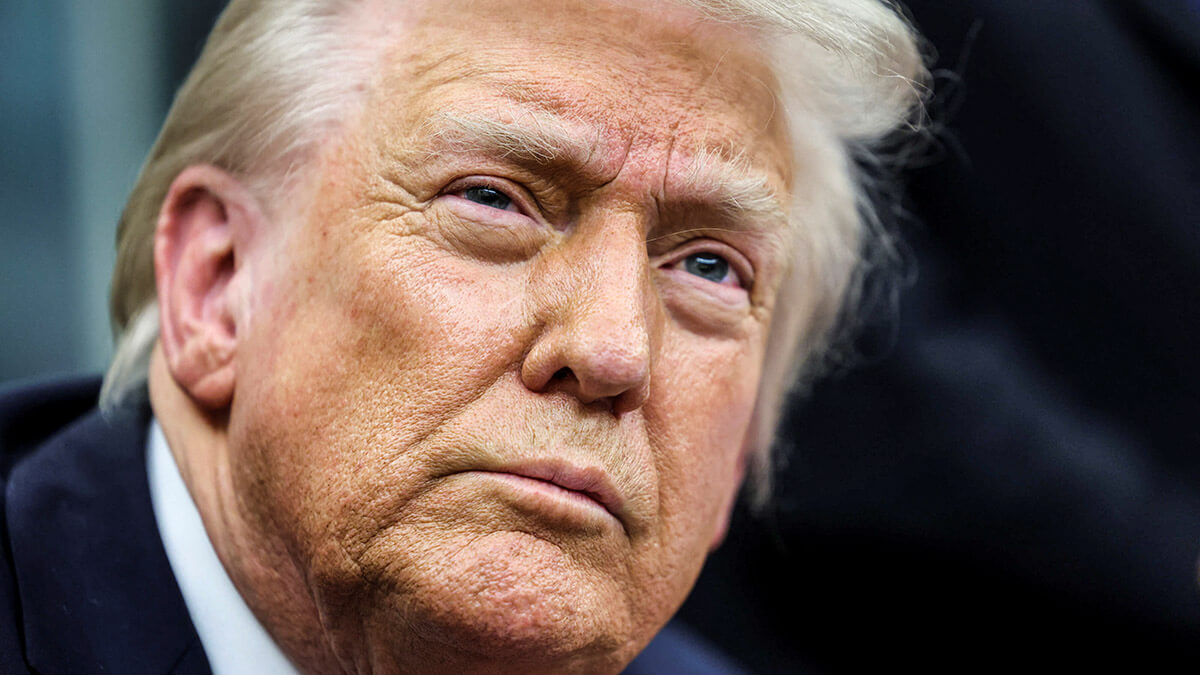
One last quick point: peace and peace in Rome, while today there are weapons and more weapons in Moscow with Putin, Xi Jinping and Maduro. Perhaps nothing is coincidental.
Nothing is coincidental; the world is once again dividing into two blocs, and there is no doubt about that. I mean, for all those on the left or right who are populists, because I am surprised, scandalised and hurt that many conservatives and centrists have an undisguised admiration for a figure like Putin, confusing the greatness of the Russian people, their history, their culture, its music, philosophy, literature, technology, engineering, everything one could want, with the current ruling class headed by Putin in the world.
I find it very serious that what is being excused is being excused, because if the war in Ukraine ends in a false peace, the world represented today sitting in Red Square watching a diminished, fragmented and completely biased parade of the liberation of Europe, which was not a Soviet feat but a collective one by the Allies against the Axis, that false closure of the war in Ukraine will only serve to fragmented and completely biased parade of the liberation of Europe, which was not a Soviet feat but a collective effort by the Allies against the Axis, will only lay the foundations for a future generalised war in Europe and the Chinese invasion of Taiwan. And that is the beginning of something very terrible.


